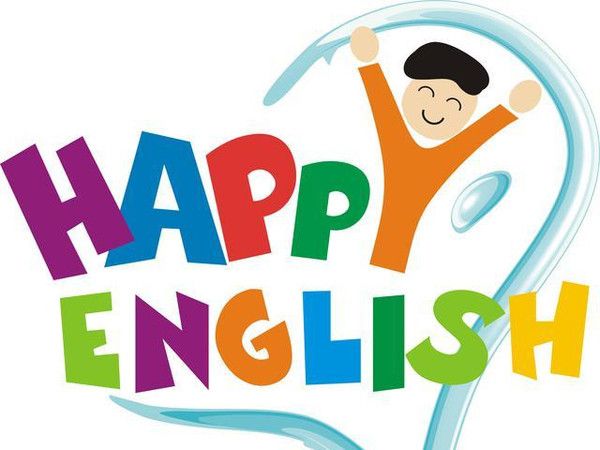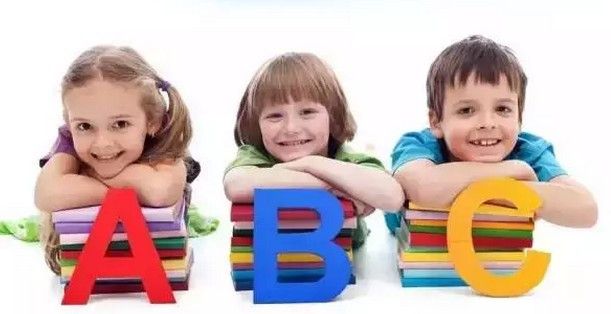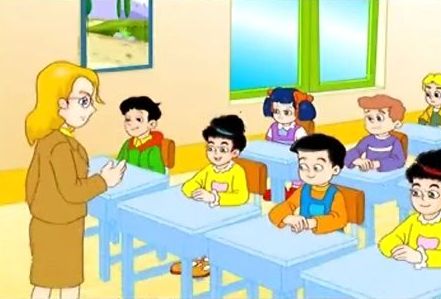易错知识点
介词用法
1. 让我来帮你完成工作吧。
× Let me help you to do your work.
√ Let me help you with your work.
2. 我建议你去休个长假。
× I recommend you to take a long vacation.
√ I recommend that you take a long vacation.
3. 过来。
× Come to here.
√ Come here.
4. 太阳从东方升起。
× The sun rises from the East.
√ The sun rises in the East.
5. 小偷是从窗户爬进来的。
× The thief got in from the window.
√ The thief got in through the window.
6. 让我们从第10页开始。
× Let's begin from page 10.
√ Let's begin at(on) page 10.
7. 我耐心有限。
× There is a limit in my patience.
√ There is a limit to my patience.
8. 请在白线内等待。
× Please wait inside the white line.
√ Please wait behind the white line.
9. 你家房子买了火险吗?
× Is your house insured for fire?
√ Is your house insured against fire?
10. 我没地方住。
× I have no house to live.
√ I have no house to live in.
11. 脸好脏!照照镜子。
× What a dirty face! Look at the mirror.
√ What a dirty face! Look in the mirror.
12. 这是我房间门钥匙。
× This is the key of my room.
√ This is the key to my room.
13. 我准备去上一个为期两年的英语课程。
× I am going to take a two-year course of English.
√ I am going to take a two-year course in English.
14. 末班车11点开,现在已经快11点了,赶紧的!
× The last bus leaves at eleven o'clock. It's about eleven now, Hurry!
√ The last bus leaves at eleven o'clock. It's nearly (almost) eleven now, Hurry!
15. 把手从电线末端挪开。
× Leave your hand from the end of the wire.
√ Let go of the end of the wire.
16. 靠右走。
× Keep the right.
√ Keep to the right.
17. 不关你的事。
× It is not of only your business.
√ It is none of your business.
连词用法
1. 和我不一样,她对英语很精通。
× Different from me, she is proficient in English.
√ Unlike me, she is proficient in English.
2. 莫妮卡,借我点钱吧,比方说500美元。
× Lend me some money, for instance 500 dollars, Monika.
√ Lend me some money, say 500 dollars, Monika.
3. 去年夏天我本想去欧洲,但费用太高于是放弃了。
× I wanted to go to Europe last summer, but it was too expensive so I gave up to go.
√ I wanted to go to Europe last summer, but it was too expensive so I gave up the idea.
4. 我就是这样做的。
× This is the way how I did it.
√ This is how I did it. or This is the way I did it.
5. 我来这儿的路上遇到了交通事故,所以迟到了。
× There was a traffic accident on my way here. It is why I was late.
√ There was a traffic accident on my way here. That is why I was late.
6. 他们不理解我的想法。
× hey didn't understand my mind.
√ They didn't understand what I was thinking.
7. 无论是他们还是我都不对这个错误负责。
× Neither they nor I are to blame for this mistake.
√ Neither they nor I am to blame for this mistake.
副词用法
1. 去哪儿都行。
× Anywhere will do.
√ Any place will do.
2. 会议定在今天下午3点召开。
× The general meeting is scheduled to be held this afternoon at three.
√ The general meeting is scheduled to be held at three this afternoon.
3. 昨天早上在费尔大街,她偶遇了她的男朋友。
× She ran into her boyfriend yesterday morning in Fair Avenue.
√ She ran into her boyfriend in Fair Avenue yesterday morning.
4. 不要对我抱太多期望。
× Don't expect me too much.
√ Don't expect too much from (of) me.
5. 给我点钱吧,如果你有的话。
× Give me money, if you have.
√ Give me money, if you have any.
6. 他待我十分友好。
× He treated me very friendly.
√ He treated me in a friendly way.
动词用法
1. 你就是在这点上弄错了。
× This is where you mistake.
√ This is where you are mistaken.
2. 我哥哥一直在忙着准备期终考试。
× My brother has been busy in preparing for his final examination.
√ My brother has been busy preparing for his final examination.
想学习更多英语知识,请关注口袋英语aikoudaiyy
3. 劳拉用了半天时间复习功课。
× Laura has spent half a day to revise her lessons.
√ Laura has spent a half day revising her lessons.
4. 我习惯了开灯看电视。
× I am used to watch television with the light on.
√ I am used to watching television with the light on.
5. 饭后,母亲提议去散步。
× After dinner, my mother suggested to go for a walk.
√ After dinner, my mother suggested going for a walk.
6. 政府正在考虑在伦敦新建一个机场的可能性。
× The government is considering the possibility to build a new airport in London.
√ The government is considering the possibility of building a new airport in London.
7. 他的新书将大卖。
× His new book will be sold well.
√ His new book will sell well.
8. 我有很多活要干。
× I have a lot of work to be done.
√ I have a lot of work to do.
9. 孩子们当时处境非常危险,一个杀气腾腾的疯子正挥着刀在幼儿园里乱跑。
× The children were very dangerous as the knife-wielding madman was running amok in the kindergarten.
√ The children were in great danger as the knife-wielding madman was running amok in the kindergarten.
单词选择
1. 你的外套破了。
× Your coat is broken.
√ Your coat is torn.
2. 总之苏珊没犯错。
× Susan didn't make a fault anyway.
√ Susan didn't make a mistake anyway.
3. 能借你电话用下吗?
× May I borrow your phone?
√ May I use your phone?
4. 他有所好转。
× He becomes better.
√ He got better.
5. 外面天还亮。
× It was still bright outside.
√ It was still light outside.
6. 在美国一般学生都不穿校服。
× Common students in U.S. don't wear a uniform.
√ The average students in U.S. don't wear a uniform.
7. 这道色拉是谁做的?
× Who cooked this salad?
√ Who made this salad?
8. 让我给你把把脉。
× Let me examine your pulse.
√ Let me feel your pulse.
9. 我把帽子忘在屋里了。
× I forget my hat in the house.
√ I left my hat in the house.
10. 你上过大学吗?
× Did you attend college?
√ Did you go to college?
11. 他的体温降下来了。
× His temperature went down.
√ His temperature came down.
12. 今天的报纸上有他写的关于香港的文章。
× Today's newspapers has his articles on HongKong.
√ Today's newspapers carries his articles on HongKong.
13. 开窗睡你会感冒的。
× You'll have a cold if you sleep with your window open.
√ You'll catch a cold if you sleep with your window open.
14. 我去医院探望了她生病的母亲。
× I visited her ill mother in the hospital.
√ I visited her sick mother in the hospital.
15. 她是第一名。
× She was first prize.
√ She took first prize.
16. 他失去意识很长时间了。
× He lost consciousness for a long time.
√ He was unconscious for a long time.
17. 他创造了世界纪录。
× He made a world record.
√ He set a world record.
18. 她婚姻幸福。
× Her marriage was happy.
√ Her married life was happy.
19. 今年夏天我要去自己的出生地看看,这是10年来的第一次。
× I'll visit my native place for the first time in ten years this summer.
√ I'll visit my birth place for the first time in ten years this summer.
20. 这个座位有人吗?
× Is this seat empty?
√ Is this seat taken?
21. 我看他面熟。
× I know his face.
√ I know him by sight.
22. 我的手表不走了,我得拿去检查下。
× My watch doesn't move at all. I must get it checked up.
√ My watch isn't running, I must get it checked up.
1现在进行时
表示正在发生的事情或进行的动作,常与now,listen,look等词连用,结构是主语+be动词(am, is, are)+动词ing.
如:It is raining now.
外面正在下雨
It is six o’clock now.
现在6点了
My parents are reading newspapers in the sitting room.
我父母正在客厅看报纸
Look! The children are having a running race now.
看!孩子们正在赛跑
问句将be动词移前,否定句在be动词后+not.
2一般现在时
表示经常反复发生的事情或动作,常与often, usually, sometimes, always, every day(week year…) on Sundays等词连用。
结构是主语+动词原形;当主语为第三人称单数即he,she, it, Tom, my mother, the boy等词时,动词后加s或es.
如:We have an English lesson every day.
我们每天都要上英语课
Do the boys run faster than the girls? Yes, they do.
男孩比女孩跑的快吗?是的
问句借助于do, does否定句借助于don’t, doesn’t,后面动词一定要还原。
3一般过去时
表示发生在过去的事情或存在的状态,常与just now; a moment ago; … ago; yesterday; last ( week; month; year; Monday; weekend); this morning等词连用。
结构是主语+be动词的过去式(was; were)或主语+动词的过去式。
注意:be动词与动词过去式不可同时使用。
如:My earphones were on the ground just now.
我的耳机刚刚还在呢。
Where were you last week? I was at a camp.
你上个星期去哪了?我去野营了
What did you do yesterday? I visited a farm
你昨天去干嘛了?我去参观农场了。
问句有be动词将be动词移前,没有be动词借助于did,后面动词还原;
否定句有be动词在后面加not,没有借助于didn't后面动词还原。
4一般将来时
表示将要打算发生的事情或动作,常与tomorrow, next week(year; Tuesday…), this week( weekend ;evening; afternoon;…)today等词连用。结构是主语+be(am, is, are) going to + 动原或主语+will +动原。
如:What are you going to do tomorrow? I am going to have a picnic.
你明天要去干嘛?我要去野餐。
The childre are going to have a sports meeting next week.孩子们下个星期将参加运动会。
Tom will/is going to see a play with his father this evening.
Tom今晚将和父母去看演出。
问句将be动词或will移前;否定句在be动词或will后加not.
5情态动词
can; can’t; should; shouldn’t; must; may后一定加动词原形。
如:The girl can’t swim, but she can skate.
女孩不会游泳,但是会滑冰
Don’t talk in class, you should listen to the teacher carefully.
不要再课上说话,你应该认真听老师讲。
6祈使句
肯定祈使句以动词原形开头;否定祈使句以don’t加动词原形开头。
如:Open the box for me ,please.
请为我打开盒子。
Liu Tao! Please get up earlier tomorrow.
刘涛,明天请早点起床!
Don’t walk on the grass!
不要在草地上走!
Helen! Don’t climb the tree,please.
海伦!不要爬树。
7go的用法
去干嘛用go +动词ing
如: go swimming; go fishing;
go skating;
go camping;
go running;
go skiing;
go rowing…
8比较
than 前用比较级;as…as之间用原级。
如:My mother is two years younger than my father.
我妈比我爸年轻两岁。
Liu Tao jumps as far as Ben.
刘涛跳得和本一样远。
9喜欢做某事
用like +动词ing或like+ to + 动原。
如: Su Yang likes growing flowers.
苏阳喜欢种花。
The children like to play with lanterns at Spring Festival.孩子们喜欢在春节去玩花灯。
10想要做某事
用 would like +to+动原或want + to +动原。
例:I’d like to visit the History Museum.=I want to visit the History Museum
11some
用于肯定句中,在否定句和问句中改为any,但当表示委婉语气时仍用
如:Can I have some writing paper? Would you like some orange juice?
12代词
人称代词主格做主语用一般放在句首或动词前,主格分别是 I you he she it we you they。
宾格做宾语用,一般放在动词或介词后
如:Open them for me. Let us …, join me等。
宾格分别是me you him her it us you them。
形容词性物主代词放在名词前,不能单独使用,分别是my your his her its our your their
名词性物主代词相当于形物加名词,它只能单独使用后面不好加名词,分别是mine yours his hers its ours yours theirs。
13介词
介词后要么不加动词,加动词只能加动词ing形式
如:be good at running;
do well in jumping;
14时间介词
季节前,月份前用介词in
如:in summer;in March
具体的哪一天如星期几,几月几日用介词on
如:on Saturday; on the second of April; on Wednesday morning
在几点钟前用介词at
如: at a quarter to four;
只在上下午晚上用in
如:in the morning/ afternoon/ evening;
但在夜间用at night。
另:季节,月份和星期前不好加the.
15名词复数构成的方法
有规则的有:
(1)直接在名词后加s
如orange—oranges; photo—photos;
(2) 以x, s, sh, ch 结尾的加es
如:box—boxes; glass—glasses; waitress—waitresses; watch—watches;peach--peaches
(3) 以辅音字母加y结尾的改y为i加es
如:study—studies;library—libraries; hobby—hobbies; family—families;
(4)以f, fe结尾的改f, fe 为v+es如:knife—knives; thief—thieves(注:以o结尾的我们学过的只有mango加es, mango—mangoes其余加s,)
不规则的有:
man—men; woman—women; people—people; child—children
16动词第三人称单数的构成
(1)直接在动词后加s
如:run—runs; dance—dances
(2)以s,sh,ch,o结尾的加es
如:do—does;go—goes;wash—washes;catch—catches
(3)以辅音字母加y结尾的改y为i加es
如:study—studies; carry—carries;
17现在分词的构成
(1)直接在动词后加ing
如:sing—singing; ski—skiing;
(2)双写词尾加ing
如:swim—swimming; jog—jogging;run—running;
(3)以不发音的e结尾的去e加ing
如:ride—riding; dance—dancing; make—making;
18规则动词过去式的构成
(1)直接在动词后加ed
如:clean—cleaned; milk—milked; play—played;
(2)以e结尾的直接加d
如:dance—danced; taste—tasted;
(3) 以辅音字母加y结尾的改y为i加ed
如:study—studied;carry—carried;
(4)双写词尾加ed
如:stop—stopped; jog—jogged;
不规则的有:am,is—was; are—were; do,does—did; have,has—had; go—went; meet—met; sit—sat; see—saw; get—got; tell—told; run—ran; come—came; steal—stole; read—read;
19形容词副词比较级的构成
规则的:
(1)直接在形容词或副词后加er
如;small—smaller; low—lower;
(2)以e结尾的加r
如:late—larer;
(3)双写词尾加er
如:big—bigger; thin—thinner; fat—fatter;
(4) 以辅音字母加y结尾的改y为i加er
如:heavy—heavier; early—earlier;
不规则的有:
good, well—better(最高级为best); many, much--- more(最高级为most); far---farther;
20rain与snow的用法
(1)作为名词意思是雨水和雪是不可数名词
如:There is a lot of rain there in spring. 那儿的春天有很多雨水。
(2) 作为动词意思是下雨和下雪,有四种形式分别是:
动词原形rain, snow;
第三人称单数rains ,snows;
现在分词raining; snowing
过去式rained; snowed;
如:①Look! It is raining now. 瞧!天正在下雨。
②It often rains in Nantong in summer.南通夏天经常下雨。
③ It rained yesterday.昨天下了雨。
④It is going to rain tomorrow. 明天要下雨。
(3)形容词为rainy 和snowy 意思是有雨的和有雪的
如:It is often rainy here in spring.这儿的春天经常是有雨的。
If it is rainy tomorrow, I’ll stay at home.如果明天是有雨的,我将呆在家里。
21比较级
注意只有同类事物才可进行比较。
如:My eyes are bigger than hers.Your school bag is heavier than mine. My computer is nicer than Nancy’s. My brother is stronger than me.
22have, has
表示某人有(has用于第三人称单数);There is/ are;
There was/ were 表示某地存在有
注意There be 句型的就近原则
单数或不可数用there is /was;
复数用there are/ were.
23本身就是复数的词
眼镜glasses; 耳机earphones; 鞋shoes;裤子trousers等词本身是复数。
如:My glasses were on the chair just now.
但如果表示这双,这副,一双的时候用单数
如:There is a pair of chopsticks on the plate. This pair of earphones is for you.
24五个元音字母分别是Aa, Ee, Ii, Oo, Uu;
25一个的用法
a用于辅音前不是辅音字母前;an 用于元音前不是元音字母前。
如:There is an ’s’, a ‘t’, a ‘u’, a ‘d’ ,an ‘e’, an ‘n’,and a ‘t’ in the word ‘student’.
26时间表示法
有两种:
(1)直接读时钟和分钟。
如6:10读成 six ten; 7:30读成seven thirty; 8:45读成eight forty-five;
(2)用to与past表示。
在半小时包括半小时以内用几分past几点
如:6:10读成ten past six; 7:30读成half past seven;
过了半小时用下一个钟点差几分
如7:45读成a quarter to eight; 9:50读成ten to ten;
27基数词变序数词的方法
基变序有规律,结尾加上th; 一二三特殊例,结尾字母t、d(即first, second, third);
八去t, 九去e, ve要用f替(即eigh—eighth; nine—ninth; five-- fifth ;twelve—twelfth);
ty改y为ie后加th别忘记(即整十数如twenty—twentieth;forty—fortieth);
几十几十位为基个位为序(如第二十一为twenty-first)。
另外强调序数词前一定要加the。
28日期的表示法
用the+序数词+ of +月
如:三月三日 the third of March;
12月25日 the 25th of December.
29both 表示两者都
如:My parents are both teachers.
all表示三者以上都
如:The students are all very excited.
30节日的表示法
有day的节日前用on.
没有day的节日前用at,
如:at Christmas; on Christmas Day; at New Year; on New Year’s Day.
31激动兴奋的
excited表示激动的,兴奋地主语是人;
exciting表示令人激动的,令人兴奋的主语是事情
如:The running race is very exciting, so all the students are very excited.
赛跑非常令人激动,因此所有的学生都很激动。
32比较
两者比较用比较级,三者以上比较用最高级
如:Who runs faster, the boy or the girl? The boy does
谁跑得更快,男孩还是女孩?男孩。
Which season do you like best? I like autumn best.
你最喜欢哪个季节?我最喜欢秋天。
Which season do you like better, summer or winter? I like winter better.
你更喜欢哪个季节,夏天还是冬天?我更喜欢冬天。
33动词还原的用法
前面用了do, does did, don’t, doesn’t didn’t后面动词要还原。
如:Did she watch TV last night?
Helen doesn’t like taking photos.
34到了
到达用get to
但注意到家,到这儿,到那儿不可以加to
如:get home; get here; get there,
另外go home; come here; go there也一样。
35长着和穿着
长着什么用with
如:the girl with big eyes 大眼睛的女孩;
穿着什么用in
如:the man in black穿黑衣服的男人
或:the woman in the white skirt 穿白色短裙的妇女
36让某人做某事
用let sb后加动词原形
如:Let’s water the flowers together.
是该做…的时候了用It’s time for+名词或It’s time to +动原。
帮助某人做某事是help sb with sth
如:帮我学英语是 help me with my English
37树上
外来的东西在树上用in the tree
如:the bird in the tree;
树上长的用on the tree
如:the apples on the tree
38运动和乐器
球类之前不加the;
乐器之前必须加the
如:play the piano; play football
39一周中的第一天是Sunday; 一年中的第一个月是January
40get后加比较级表示变得更怎么样 。如:get stronger; get long



